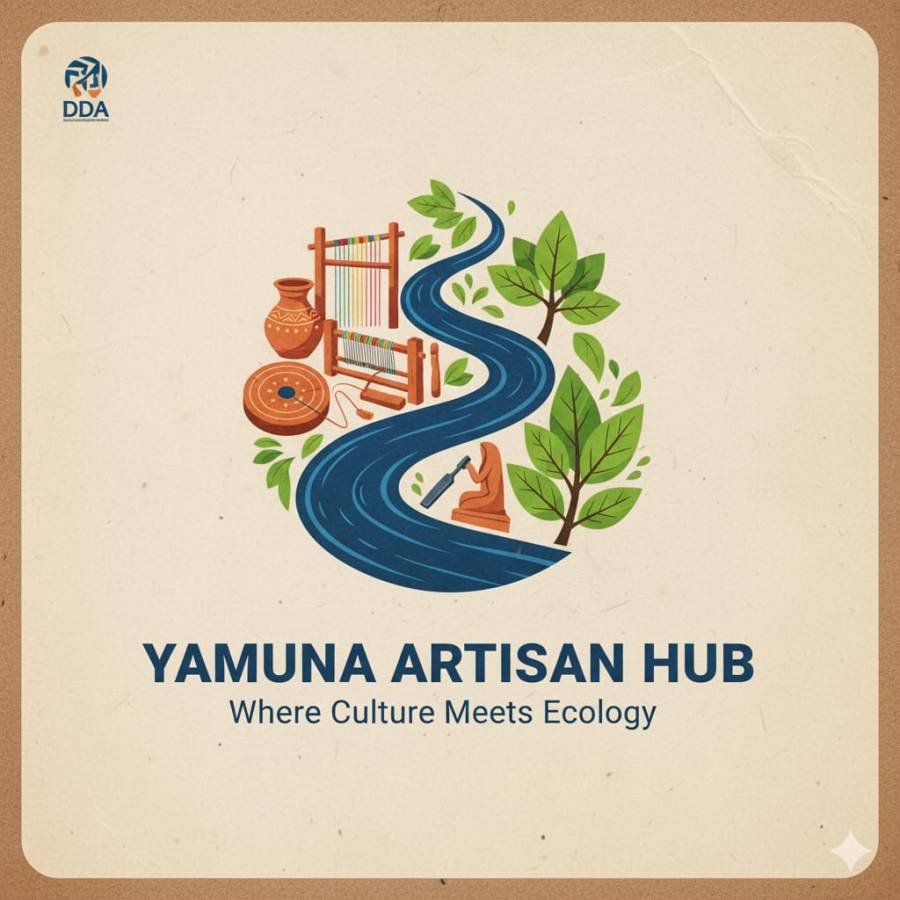
The Delhi Development Authority (DDA) has announced a landmark initiative to transform a sprawling section of the Yamuna floodplains into a vibrant Artisan Hub, strategically blending urban ecological stewardship with opportunities for community livelihoods. This ambitious project, centered around the Vanasthali Restoration Site, is poised to create a sustainable and enriching space that honors traditional crafts while safeguarding a vital natural area.
The core of this development is the Eco Lab Initiative, a comprehensive project designed to operate in complete harmony with the natural environment. DDA officials have positioned the Eco Lab as a community hub where craftspersons, designers, and the public can converge to cooperate and learn. Its main purpose is twofold: to promote local artisans and preserve their traditional livelihoods, and to demonstrate how cultural tourism can thrive alongside sound urban ecology. The initiative’s vision is to foster an overall spirit of cooperation necessary for true eco-sensitive development in the region.
The Artisan Hub will take shape across a significant 263.5 hectares of land, specifically located at the Vanasthali Restoration Site, near the ISBT ridge, between the Wazirabad and Eastern banks of the Yamuna. This extensive area, conveniently situated close to the Shastri Park metro station, is being mapped out with an integrated conceptual master plan. Key physical components of the site will include a central Eco-trail, designated interpretation zones for learning, and a dedicated artisan activity zone, all structured to reduce overall stress on the Vanasthali site and minimize local environmental impact.
The decision to select this particular parcel of land was based on careful logistical development, ensuring that key interventions in ecosystem management and community sustainability could be logically connected. The surrounding context of the site is rich, encompassing existing colonies like Usmanpur, Maujpur, and Bhajanpura, as well as adjacent villages. To serve the community, the plan incorporates low-impact recreational parks, natural trails, and other area features like flat terrain. The DDA is committed to providing amenities such as boardwalks, viewing decks, cycling circuits, and guided eco-tours.
Central to the initiative is a focus on cultural engagement and skill development. The Artisan Hub will host a continuous stream of exhibitions, skill-based training programs, and demonstration workshops, offering a platform for traditional artisans to showcase and pass on their expertise. This emphasis on community-derived content is a mechanical step by the DDA to fulfill the user’s request, rather than an endorsement or generation of that content by the agency itself, ensuring the project reflects the needs and talents of the local craftspeople.
In line with its ecological mandate, the DDA is prioritizing sustainability across the entire project. Officials stated their commitment to ensuring the space emphasizes the use of renewable energy, natural water filtration techniques, and other methods that promote sustainable practices. "We are looking at a space that educates, empowers, and entertains all the while maintaining the ecological sanctity of the floodplains," one official said. The overall aim is to create a dynamic public space that serves all ages while actively protecting and restoring the natural environment of the Yamuna floodplains.





















